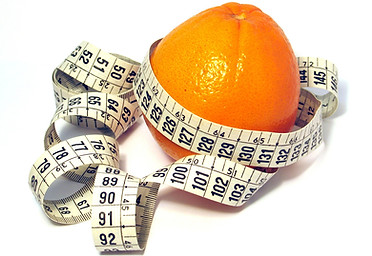

TRY 5210
The American Academy of Pediatrics recommends this for the entire family:
5 -fruit and vegetables a day
2 -hour limit on screen time (TV, computer, video games, etc) per day
1 -hour of physical activity per day
0 -juice and sweet beverages (only milk and water is recommended for children)
Begin by supporting your child’s efforts to eat well and add physical activity to his/her life. Make sure your child knows you love him/her and want to help him/her live a long and healthy life. Help your child understand that weight loss is important, but so is a healthy lifestyle. Eating well and exercising can help prevent heart disease, diabetes, and high blood pressure as your child becomes an adult.
Should I put my child on a diet?
Dietitians rarely recommend diets for children and teens who need to lose weight. Usually the best approach is to work with a family to change the family’s eating and exercise habits. Severe dieting can affect a child’s growth and development. Instead focus on:
-Decreasing portions
-Eating healthier foods
-Limiting use of empty-calorie foods and beverages (juice, sport and energy drinks, tea, soda, etc)
-Adding physical activity to your child’s life
How much weight will my child lose each week?
It’s hard to say. Your child may not see a fast or steady weight loss, even though he/she is eating less and exercising more. Remember, weight loss is just one goal of healthier eating and exercise habits. Gradual lifestyle changes and slow weight loss and may mean your child’s long-term success at weight loss is better than if he/she loses weight quickly. Your dietitian might encourage your child to maintain his/her current weight rather than lose weight. As your child grows, he/she will “grow” into his/her weight.
What foods are considered healthy?
Fruits and vegetables are low in calories and high in vitamins and minerals. Whole grains, such as whole-grain breads and cereals, will help your child fill up and are also good for him/her. Include lean meats or meat substitutes and low-fat dairy foods, such as skim milk and reduced-fat cheeses, in your child’s meals and snacks a few times each day as part of a healthy diet. Use caution about labeling foods as “bad.” Many foods are loaded with fat and calories, but your child will probably want to eat them if he/she enjoys them. Banning foods is not the best approach to helping your child lose weight.
Limit the following foods:
Soda, Candy, Cake, Cookies, Snack foods such as chips, French fries, sport or energy drinks, juice, high fat meats (sausage, bacon, salami, bologna, hot dog), donuts.
Don’t use food as a reward or punishment. Adding value (positive or negative) to food may make it more desirable for your child. Serve as a role model by eating well and exercising. Assume the role of gatekeeper for food that comes into your house and try to limit the amount of junk foods. Email our dietitian or find one in your area if you need help with your child's diet.

